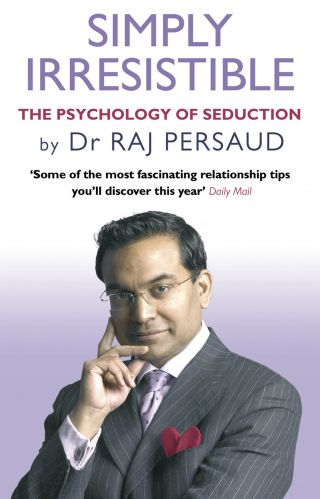Sex
New Psychology of Kissing Reveals Its True Purpose
What is the psychology of kissing? New research provides a surprising answer
Posted August 19, 2015
By Dr. Raj Persaud and Professor Adrian Furnham
There are different scientific theories as to why people indulge in romantic or erotic kissing.
Rafael Wlodarski and Robin Dunbar from the Department of Experimental Psychology, University of Oxford, recently published one of the most in-depth studies of kissing, involving 308 male and 594 female participants, aged 18-63 years old.

The investigation challenges conventional views of why we kiss. The surprising results suggest there may be more going on beneath the surface, when it comes to kissing, than is commonly realised.
The study concludes that kissing may be so common because it serves a useful biological or evolutionary purpose. It might even have evolved a 'survival of the fittest' function. At a conscious or subconscious level, women in particular, are using kissing to assess whether a potential partner is high enough quality to mate with.
That there might be more to kissing than meets the eye, is suggested by older studies cited by Rafael Wlodarski and Robin Dunbar in their paper, published in the academic journal, 'Archives of Sexual Behaviour'.
For example, previous research has found that men are much more likely to initiate kissing before sex, the theory being, given the timing, that kissing here serves 'arousal' purposes. Yet women are more likely to initiate kissing after sex, where there might be a different intention. At this time 'relationship maintenance' might be the priority.
This 'attachment' theory of kissing, perhaps particularly for women, according to Wlodarski and Dunbar, has previously been suggested by anecdotal evidence from other researchers examining the business practices of working prostitutes. Commercial sex workers often, apparently, refuse to kiss clients on the basis that it is ''too intimate'' or ''it smacks too much of genuine desire and love for the other person''.
Scientists speculate that kissing might also signal commitment because of the intimacy of the act. It necessarily requires breaching personal boundaries. Kissers risk various health hazards, including influenza, herpes simplex virus or meningococcal meningitis. These perils indicate there should be a powerful evolutionary or 'survival of the fittest' reason behind kissing, as life might be safer without it. It is also a highly intimate and arousing activity, releasing various neurotransmitters and neuropeptides in the brain thought to be responsible for increased feelings of attachment.
While previous research has found both men and women rate kissing as the form of physical affection ''most expressive of love'', women seem to place greater overall importance on romantic kissing than men. In a separate study, also about to be published, Wlodarski and Dunbar found that women in the phase of their menstrual cycle of highest risk for conception, valued kissing most at initial relationship stages.

Men and women may have different reasons to kiss, because evolutionary theory predicts they will deploy various courtship and relationship tactics in different ways. The contrasting mating strategies might be in conflict.
As historically sex was always accompanied by a chance of falling pregnant, requiring much more 'biological' investment from women, it would have a different meaning between sexes. This would imply women should be much more discerning when it comes to selecting a mate, given their higher levels biological investment.
Wlodarski and Dunbar point to a considerable body of research confirming that females are indeed much more rigorous and selective when it comes to entertaining who to mate with, than males. As a result, the experimenters hypothesised that particularly for women, kissing serves a kind of 'mate-assessment' function.
Their study entitled, 'Examining the Possible Functions of Kissing in Romantic Relationships', found very little evidence the primary purpose of kissing is arousal. Instead, the results indicated kissing serves a useful 'mate-assessment' function. Women placed greater importance on kissing in romantic relationships, and stated that an initial kiss was more likely to affect their attraction to a potential mate, than did men. Women were more likely than men to have experienced a change in attraction, after an initial kiss.
Both men and women who rated themselves as scoring higher on attractiveness, rated kissing as more important than 'low attractiveness' participants. Those who see themselves as more attractive have been previously found to be more selective, and value more cues of genetic quality in mating.
Kissing was also generally seen as more important in long-term relationship contexts (but particularly so by women), and kissing frequency was found to be related to relationship satisfaction.
Women thought kissing was more important than men ''at other times not related to sex''. Overall, for both men and women, kissing was seen as much more important with long-term partners. Also both men and women agreed that kissing short-term partners was seen as most important only before sex, less important during sex, even less vital after sex, and least crucial at ''other times''.
Rafael Wlodarski and Robin Dunbar concede that while one of the most obvious consequences of kissing is indeed bodily arousal, their data did not support the widely held belief that getting 'turned on' is the key driving factor associated with the prevalence of kissing.

Instead, perhaps the most intriguing and important finding from the study, is that kissing could even be as important, if not more important, than sex. The investigation found that having a partner who was a ''good'' kisser, greater frequency of kissing in the relationship, greater satisfaction with the amount of kissing, were all positively associated with relationship quality, while the frequency sex in the relationship, was not significantly related to relationship quality.
One of the key implications is that the purpose of kissing might depend on where you are in the relationship, during the act. Wlodarski and Dunbar suggest kissing can help both assess mates, and facilitate attachment, at different stages of the relationship.
The authors conclude there may be something unique about romantic kissing that affects attachment and relationship satisfaction to a greater degree, than more physiologically arousing activities such as sex.
Follow Dr Raj Persaud on Twitter: www.twitter.com/@DrRajPersaud
Raj Persaud and Peter Bruggen are joint podcast editors for the Royal College of Psychiatrists and also now have a free app on iTunes and Google Play store entitled ‘Raj Persaud in conversation’, which includes a lot of free information on the latest research findings in mental health, plus interviews with top experts from around the world.
Download it free from these links:
https://play.google.com/store/apps/details?id=com.rajpersaud.android.ra…
https://itunes.apple.com/us/app/dr-raj-persaud-in-conversation/id927466…




